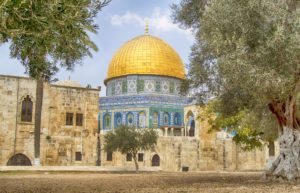
Share this Blog
Change of Qiblah
Change of Qiblah
The Orientation to Qiblah
This verse begins by speaking of how deeply the Holy Prophet (SAW) wished that the Kabah be appointed as the Qiblah of the Muslims. This inclination has been explained in different ways, but there is no real contradiction involved in these different views. For example, it has been said that before prophethood was conferred on him, he used to follow, out of the impulsion of his own nature, the way of Sayyidna Ibrahim (Abraham) was, and that when he began to receive the Revelation, the Holy Qur’an itself designated his Shari’ah as being in total accord with the Abrahamic Way. Moreover, the Qiblah of Sayyidna Ibrahim عليه السلام as well as that of Sayyidna Ismail عليه السلام had been the Ka’bah. So, it was quite in the nature of things for him to wish that the Ka’bah be appointed as the Qiblah of the Muslims. An additional factor was that the Arab tribes, in spite of being associators, at least claimed to be the followers of the Abrahamic Way, and acknowledged the Ka’bah as their Qiblah in contradiction to the Jews. Once the Ka’bah had been made the Qiblah of the Muslims, the Arabs could be expected to find Islam more acceptable. As for the hope that the adoption of the Baytul-Maqdis as the Qiblah would bring the Jews closer to Islam, it had been dashed by the events of the last sixteen or seventeen months, for the hostility of the Jews to Islam, fed by their vanity, had only been growing more intense.فَوَلِّ وَجْهَكَ شَطْرَ ٱلْمَسْجِدِ ٱلْحَرَامِ
“So turn your face towards the Sacred Mosque”
Here we find a manifestation of the subtle workings of divine grace – the Holy Prophet (SAW) was, to begin with, granted the joy of hearing a promise made, and, immediately after, the greater joy of seeing the promise fulfilled. (Qurtubi, Jaşsāş and Mazhari)YOUR WEEKLY DOSE OF
Share this Blog
Tuition Payment by Etransfer
Please send your etrasnfer in the full amount of your course tuition to
finances@ihsan.ca
IMPORTANT: The full name and email address you used to register for the course must be added as a note to the etrasnfer to assure the payment is applied to your account.